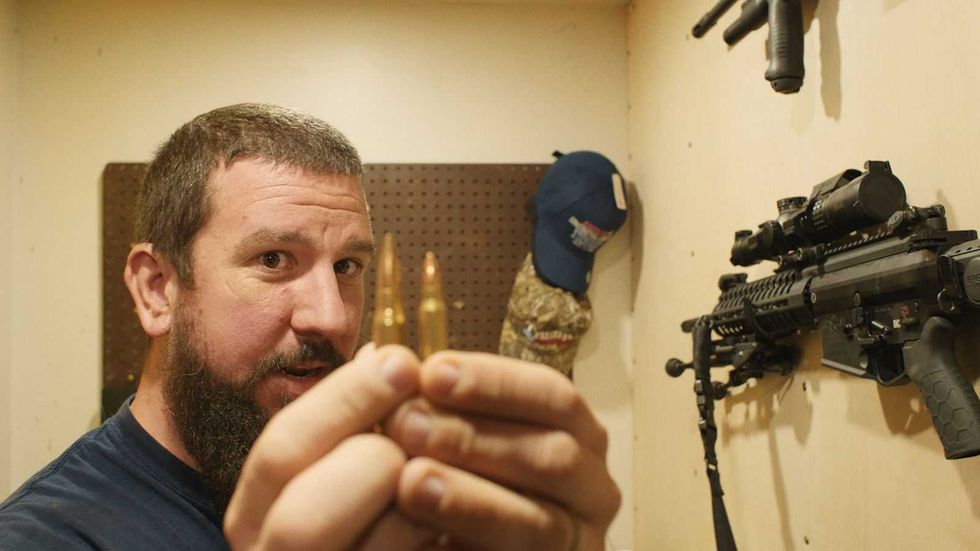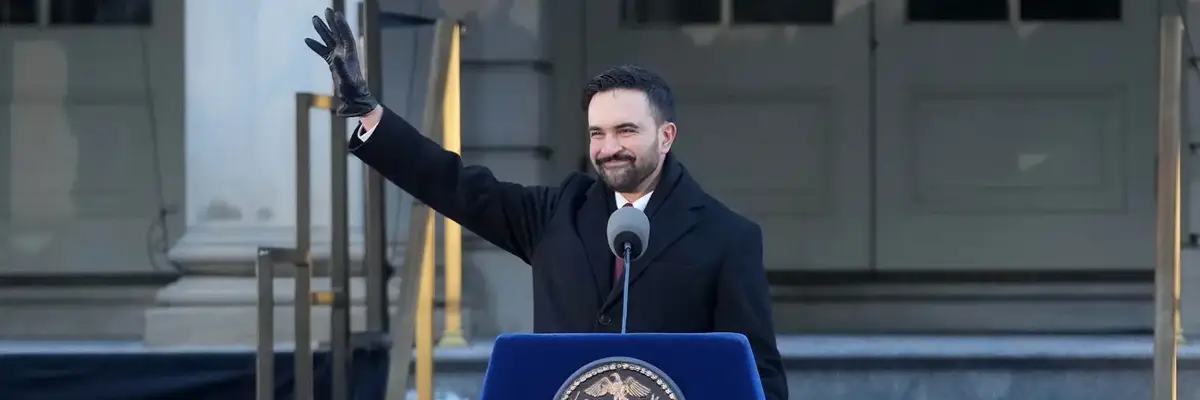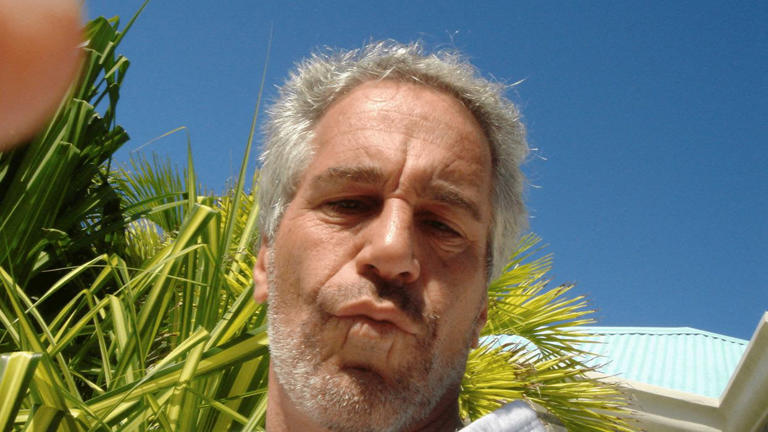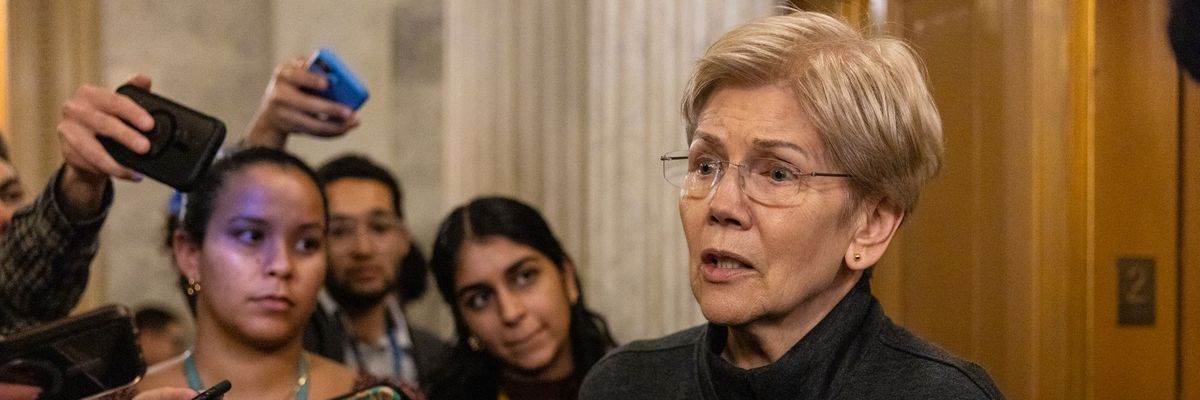US Capitol riot anniversary exposes a country still divided
By AFP
January 6, 2026

Trump supporters clashed with police and security forces as they stormed the US Capitol on January 6, 2021 - Copyright AFP/File Olivier DOULIERY
Frankie TAGGART
Washington on Tuesday marks five years since a mob overran the US Capitol, with rioters pardoned by Donald Trump retracing their steps as Democrats revive hearings to hold the president accountable.
The anniversary of a day that reshaped American politics is expected to reflect a country still unable to agree on who was responsible, or what justice should look like.
“Five years ago today, a violent mob brutally attacked the US Capitol on January 6. Their mission was to overturn a free and fair election. We will never allow extremists to whitewash their treachery,” top House Democrat Hakeem Jeffries posted on X.
On January 6 2001, thousands of Trump supporters gathered in Washington after the president urged them to protest Congress’s certification of his election defeat to Joe Biden.
Several thousand breached the Capitol grounds, overwhelming police lines and wounding more than 140 officers, smashing windows and doors, ransacking offices and forcing lawmakers into hiding as the electoral count was halted for hours.
Inside the Capitol on Tuesday, House Democrats are convening an unofficial hearing featuring police, former lawmakers and civilians who experienced the violence firsthand.
Many involved in the original investigation say the aim is not to relitigate the past but to prevent it from being erased — particularly after Trump returned to office and pardoned nearly all defendants charged in connection with the attack.
– Normalizing political violence –
A new Democratic report documents dozens of pardoned rioters later charged with new crimes, and they warn that the clemency risks normalizing political violence.
Outside the building Trump supporters, including figures linked to the far-right Proud Boys, are staging a midday march retracing the route taken by rioters in 2021.
The march is being promoted by the group’s former leader Enrique Tarrio, who was serving a 22-year sentence for seditious conspiracy before Trump pardoned him.
Organizers say the march will honor those who died, including Trump rioter Ashli Babbitt, and protest what they describe as excessive force by police and politically motivated prosecutions, insisting the event will be peaceful.
The competing events mirror a broader political dispute, with Democrats saying Trump incited the attack to overturn the election. Republicans reject that view, instead citing security failures and criticizing the Justice Department.
Republican leaders have dismissed Tuesday’s hearing as partisan and have shown little appetite for formal commemoration.
House Speaker Mike Johnson, an unswerving Trump ally, has yet to install a plaque honoring Capitol Police officers who defended the building that day, despite a federal law requiring it.
And Republican investigator Barry Loudermilk has argued that January 6 has been used to advance a political narrative against Trump and his allies.
The anniversary also arrives against the backdrop of unresolved legal and historical questions.
Former special counsel Jack Smith has said the attack would not have occurred without Trump, but abandoned the federal case after Trump’s reelection, in line with Justice Department policy barring prosecution of a sitting president.
Trump was impeached by the House over the riot in 2021 and acquitted by the Senate.
This direct line links Jan 6 to Trump's attack on Venezuela
Robert Reich
January 6, 2026

An explosion caused by a police munition is seen at the Capitol on Jan. 6 2021. REUTERS/Leah Millis
Donald Trump’s domestic and foreign policies — ranging from his attempted coup against the United States five years ago today, to his incursion into Venezuela last weekend, to his current threats against Cuba, Colombia, and Greenland — undermine domestic and international law. But that’s not all.
They threaten what we mean by civilization.
The moral purpose of civilized society is to prevent the stronger from attacking and exploiting the weaker. Otherwise, we’d be permanently immersed in a brutish war in which only the fittest and most powerful could survive.
This principle lies at the center of America’s founding documents: the Declaration of Independence, the Constitution, and the Bill of Rights. It’s also the core of the post-World War II international order championed by the United States, including the UN Charter — emphasizing multilateralism, democracy, human rights, and the rule of law.
But it’s a fragile principle, easily violated by those who would exploit their power. Maintaining the principle requires that the powerful have enough integrity to abstain from seeking short-term wins, and that the rest of us hold them accountable if they don’t.
Every time people or corporations or countries that are richer and more powerful attack and exploit those that are not, the fabric of civilization frays. If such aggression is not contained, the fabric unravels. If not stopped, the world can descend into chaos and war. It has happened before.
We now inhabit a society and world grown vastly more unequal. Political and economic power are more concentrated than ever before. This invites the powerful to exploit the weaker because the powerful feel omnipotent.
The wealth of Elon Musk, Jeff Bezos, Mark Zuckerberg, Larry Ellison, Charles Koch, and a handful of others is almost beyond comprehension. The influence of Big Tech, Big Oil, and the largest aerospace and defense corporations extends over much of the globe. AI is likely to centralize wealth and power even more. The destructive power of the United States, China, and Russia is unmatched in human history.
Trump — enabled by cowardly congressional Republicans and a pliant majority on the Supreme Court — has turned the U.S. presidency into the most powerful and unaccountable agent of American government in history.
Put it all together and you see the threat.
A direct line connects Trump’s attempted coup five years ago to his capture of Nicolas Maduro last weekend. Both were lawless. Both were premised on the hubris of omnipotence.
That same line extends to Trump’s current threats against Cuba, Colombia, and Greenland.
You see much the same in Putin’s war on Ukraine. In Xi’s threats against Taiwan. In global depredation and monopolization by Big Tech and Big Oil. In Russian, Chinese, and American oligarchs who have fused public power with their personal wealth.
But unfettered might does not make right. It makes for instability, upheaval, and war.
History shows that laws and norms designed to constrain the powerful also protect them. Without such constraints, their insatiable demands for more power and wealth eventually bring them down — along with their corporations, nations, or empires. And threaten world war.
Trump’s blatant lawlessness will haunt America and the world — and civilization — for years to come.
Robert Reich is a emeritus professor of public policy at Berkeley and former secretary of labor. His writings can be found at https://robertreich.substack.com/.
Robert Reich's new memoir, Coming Up Short, can be found wherever you buy books. You can also support local bookstores nationally by ordering the book at bookshop.org
January 6 was a day of horror in DC — but we must remember where it came from
Ruth Coniff,
Ruth Conniff is Editor-in-chief of the Wisconsin Examiner. She formerly served as Editor-in-chief of The Progressive Magazine where she worked for many years from both Madison and Washington, DC. Shortly after Donald Trump took office she moved with her family to Oaxaca, Mexico, and covered U.S./Mexico relations, the migrant caravan, and Mexico’s efforts to grapple with Trump. Conniff is the author of "Milked: How an American Crisis Brought Together Midwestern Dairy Farmers and Mexican Workers" which won the 2022 Studs and Ida Terkel award from The New Press. She is a frequent guest on MSNBC and has appeared on Good Morning America, Democracy Now!, Wisconsin Public Radio, CNN, Fox News and many other radio and television outlets. She has also written for The Nation, The New York Times, The Washington Post, and The Los Angeles Times, among other publications. She lives in Madison, Wisconsin with her husband and three daughters.
Ruth Coniff,
Wisconsin Examiner
January 6, 2026

Trump supporters tear down a barricade at the Capitol on January 6. REUTERS/Shannon Stapleton
Five years ago today we were transfixed by the surreal spectacle of the attack on the U.S. Capitol. The violence and horror of that day was made more bearable when the insurrectionists were arrested and the election results they tried to overturn were certified.
But now they’re back, pardoned by President Donald Trump and released from prison and planning to parade triumphantly today through the streets of Washington, D.C.
Among the people convicted and later pardoned by Trump, at least 33 have been arrested and charged with new crimes, according to the watchdog group Citizens for Responsibility and Ethics in Washington. Their alleged continuing criminal behaviors include rape, illegal possession of weapons, firing on police officers, and, in the case of Christopher Moynihan, threatening to murder House Minority Leader Hakeem Jeffries.
Some of the most violent offenders are back behind bars. But the most powerful proponents of the Big Lie, including Trump himself, the enablers who staff his administration and the Wisconsin Republicans who hatched the fake electors scheme to try to overturn the results of the 2020 election, continue to work to undermine our democracy.
“We must continue to defeat election deniers and the threats they pose,” the Wisconsin-based progressive firm Law Forward declares on its website, in a section devoted to a timeline of the fake electors scheme.
Law Forward brought the first class-action lawsuit against Wisconsin’s fake electors, and forced the release of documents, text messages and other evidence showing how the plot unfolded. They present the timeline “as a call to action for every American to see how close our democracy came to toppling and how the freedom to vote must continue to be protected, not taken for granted.”
For a few years it seemed as though we had dispelled the nightmare of Jan. 6. But the lawless, emboldened second Trump administration has dragged us back to that scary, dangerous time.
The brave work of people like Jeff Mandell, founder of Law Forward, and the other lawyers, judges and investigators who continue to struggle against the agents of authoritarianism trying to destroy American democracy is still making a difference.
Last month, Dane County Judge John Hyland found probable cause to continue the trial of Wisconsin attorney James Troupis and Trump campaign aide Mike Roman, charged with felony forgery by Wisconsin Attorney General Josh Kaul in connection with the fake electors scheme. Hyland rejected Troupis’ desperate effort to scuttle the case by claiming another judge had a personal bias against him.
Wisconsin attorney Ken Cheseboro, the originator of the fake electors plot, is also facing felony charges.
As Trump and his gang openly defy the U.S. Constitution, pursue baseless, vindictive prosecutions of their political enemies, launch military actions without the consent of Congress, threaten to seize other countries and use their positions to enrich themselves while destroying the public welfare, it feels as through that dark moment on Jan. 6 when American democracy was under physical attack was just the beginning.
But as Mandell told me last year, a few months after Trump took office, “I think building a stronger, more resilient democracy in Wisconsin is its own form of resistance.
“When things feel most shocking and unstable at the federal level,” at the state and local level, Mandell said, “we can show our institutions still work and provide some reassurance.”
We need that reassurance today more than ever.
“We are slow to realize that democracy is a life and involves continual struggle,” said Robert M. La Follette, the great governor and senator from Wisconsin and founder of the Progressive movement. I’m grateful for the Wisconsinites today who, like La Follette, are committed to that life and willing to continue the struggle.
January 6, 2026

Trump supporters tear down a barricade at the Capitol on January 6. REUTERS/Shannon Stapleton
Five years ago today we were transfixed by the surreal spectacle of the attack on the U.S. Capitol. The violence and horror of that day was made more bearable when the insurrectionists were arrested and the election results they tried to overturn were certified.
But now they’re back, pardoned by President Donald Trump and released from prison and planning to parade triumphantly today through the streets of Washington, D.C.
Among the people convicted and later pardoned by Trump, at least 33 have been arrested and charged with new crimes, according to the watchdog group Citizens for Responsibility and Ethics in Washington. Their alleged continuing criminal behaviors include rape, illegal possession of weapons, firing on police officers, and, in the case of Christopher Moynihan, threatening to murder House Minority Leader Hakeem Jeffries.
Some of the most violent offenders are back behind bars. But the most powerful proponents of the Big Lie, including Trump himself, the enablers who staff his administration and the Wisconsin Republicans who hatched the fake electors scheme to try to overturn the results of the 2020 election, continue to work to undermine our democracy.
“We must continue to defeat election deniers and the threats they pose,” the Wisconsin-based progressive firm Law Forward declares on its website, in a section devoted to a timeline of the fake electors scheme.
Law Forward brought the first class-action lawsuit against Wisconsin’s fake electors, and forced the release of documents, text messages and other evidence showing how the plot unfolded. They present the timeline “as a call to action for every American to see how close our democracy came to toppling and how the freedom to vote must continue to be protected, not taken for granted.”
For a few years it seemed as though we had dispelled the nightmare of Jan. 6. But the lawless, emboldened second Trump administration has dragged us back to that scary, dangerous time.
The brave work of people like Jeff Mandell, founder of Law Forward, and the other lawyers, judges and investigators who continue to struggle against the agents of authoritarianism trying to destroy American democracy is still making a difference.
Last month, Dane County Judge John Hyland found probable cause to continue the trial of Wisconsin attorney James Troupis and Trump campaign aide Mike Roman, charged with felony forgery by Wisconsin Attorney General Josh Kaul in connection with the fake electors scheme. Hyland rejected Troupis’ desperate effort to scuttle the case by claiming another judge had a personal bias against him.
Wisconsin attorney Ken Cheseboro, the originator of the fake electors plot, is also facing felony charges.
As Trump and his gang openly defy the U.S. Constitution, pursue baseless, vindictive prosecutions of their political enemies, launch military actions without the consent of Congress, threaten to seize other countries and use their positions to enrich themselves while destroying the public welfare, it feels as through that dark moment on Jan. 6 when American democracy was under physical attack was just the beginning.
But as Mandell told me last year, a few months after Trump took office, “I think building a stronger, more resilient democracy in Wisconsin is its own form of resistance.
“When things feel most shocking and unstable at the federal level,” at the state and local level, Mandell said, “we can show our institutions still work and provide some reassurance.”
We need that reassurance today more than ever.
“We are slow to realize that democracy is a life and involves continual struggle,” said Robert M. La Follette, the great governor and senator from Wisconsin and founder of the Progressive movement. I’m grateful for the Wisconsinites today who, like La Follette, are committed to that life and willing to continue the struggle.
Ruth Conniff is Editor-in-chief of the Wisconsin Examiner. She formerly served as Editor-in-chief of The Progressive Magazine where she worked for many years from both Madison and Washington, DC. Shortly after Donald Trump took office she moved with her family to Oaxaca, Mexico, and covered U.S./Mexico relations, the migrant caravan, and Mexico’s efforts to grapple with Trump. Conniff is the author of "Milked: How an American Crisis Brought Together Midwestern Dairy Farmers and Mexican Workers" which won the 2022 Studs and Ida Terkel award from The New Press. She is a frequent guest on MSNBC and has appeared on Good Morning America, Democracy Now!, Wisconsin Public Radio, CNN, Fox News and many other radio and television outlets. She has also written for The Nation, The New York Times, The Washington Post, and The Los Angeles Times, among other publications. She lives in Madison, Wisconsin with her husband and three daughters.
‘Destined to repeat’: J6 documentary's stark warning as America tries to forget

Chris Quaglin receives treatment for teargas from another pro-Trump protester on Jan. 6, 2021. Courtesy Storyline Media
Five years after Donald Trump’s supporters stormed the U.S. Capitol amidst a blizzard of lies, with the president and his associates falsely claiming the 2020 election was stolen, January 6th may be a story Americans no longer care to hear.
Homegrown, a documentary that tracks three members of the neo-fascist street gang the Proud Boys from the turbulent summer of 2020 to Jan. 6 2021 and the attack on Congress, has won accolades and enthralled streaming viewers in Europe and South America. But the film’s producers have yet to find a U.S. distributor.
“I really think it’s telling around the narrative, around January 6th that it’s been downplayed and diminished within our national conversation,” director Michael Premo told Raw Story.
“That implies we’re only destined to repeat it.”
‘A self-coup’
Premo, a documentary filmmaker who was previously involved in the Occupy Wall Street movement and Hurricane Sandy relief, thinks Americans have trouble coming to grips with January 6th because it runs counter to what most believe about their country.
“I think Trump is such a distillation of everything America pretends it’s not,” he said.
“That is all wrapped up in what January 6th is.
“If this was a country in the Middle East or South America, we’d be talking about a self-coup. That’s not what we’re talking about. That’s not the popular narrative.”
Homegrown has received positive reviews in Europe and South America, and Premo told Raw Story that for a time it was the sixth-most popular streaming movie in New Zealand.
But Americans who want to see Homegrown will have to rent it directly from the film’s website, from Jan. 6 through Feb.16 — the President’s Day holiday.
“We’ve talked to many distributors, and we’ve gotten confounding rejection,” Premo said.
“They’ve said, ‘We love it, but we can’t take it.’ People have been ‘counter-programming-the-apocalypse,’ is what I call it — just light, happy fare.”
Revelatory portraits
For anyone who followed the news closely from protests for racial justice in the summer of 2020 through the presidential election that November and its chaotic fallout, the feverish pace of the storytelling in Homegrown will summon familiar feelings of excitement, dread and anxiety.
But the portraits of the three men profiled in the film, drawn in full humanity, revealing themselves with flashes of violence, self-reflection and regret, will likely come as a revelation to many.
Chris Quaglin is a father-to-be who vandalizes a Black Lives Matter mural.

Chris Quaglin
Investigative Reporter
January 6, 2026
January 6, 2026

Chris Quaglin receives treatment for teargas from another pro-Trump protester on Jan. 6, 2021. Courtesy Storyline Media
Five years after Donald Trump’s supporters stormed the U.S. Capitol amidst a blizzard of lies, with the president and his associates falsely claiming the 2020 election was stolen, January 6th may be a story Americans no longer care to hear.
Homegrown, a documentary that tracks three members of the neo-fascist street gang the Proud Boys from the turbulent summer of 2020 to Jan. 6 2021 and the attack on Congress, has won accolades and enthralled streaming viewers in Europe and South America. But the film’s producers have yet to find a U.S. distributor.
“I really think it’s telling around the narrative, around January 6th that it’s been downplayed and diminished within our national conversation,” director Michael Premo told Raw Story.
“That implies we’re only destined to repeat it.”
‘A self-coup’
Premo, a documentary filmmaker who was previously involved in the Occupy Wall Street movement and Hurricane Sandy relief, thinks Americans have trouble coming to grips with January 6th because it runs counter to what most believe about their country.
“I think Trump is such a distillation of everything America pretends it’s not,” he said.
“That is all wrapped up in what January 6th is.
“If this was a country in the Middle East or South America, we’d be talking about a self-coup. That’s not what we’re talking about. That’s not the popular narrative.”
Homegrown has received positive reviews in Europe and South America, and Premo told Raw Story that for a time it was the sixth-most popular streaming movie in New Zealand.
But Americans who want to see Homegrown will have to rent it directly from the film’s website, from Jan. 6 through Feb.16 — the President’s Day holiday.
“We’ve talked to many distributors, and we’ve gotten confounding rejection,” Premo said.
“They’ve said, ‘We love it, but we can’t take it.’ People have been ‘counter-programming-the-apocalypse,’ is what I call it — just light, happy fare.”
Revelatory portraits
For anyone who followed the news closely from protests for racial justice in the summer of 2020 through the presidential election that November and its chaotic fallout, the feverish pace of the storytelling in Homegrown will summon familiar feelings of excitement, dread and anxiety.
But the portraits of the three men profiled in the film, drawn in full humanity, revealing themselves with flashes of violence, self-reflection and regret, will likely come as a revelation to many.
Chris Quaglin is a father-to-be who vandalizes a Black Lives Matter mural.

Chris Quaglin
Chris Quaglin shows off ammunition for his various guns. Courtesy Storyline Media
Thad Cisneros is a high-ranking Latino leader of the Proud Boys who forges a cross-ideological alliance against police violence.
Randy Ireland is an Air Force veteran who takes on the unglamorous, behind-the-scenes duties of organizing the group.
All are footsoldiers of the Trump movement, destined to sink back into obscurity once they’ve outlived their usefulness.
In one scene, filmed about a week after January 6th, Quaglin is seen fixing up a room for his son, who is about to be born.
“I got him to worry about,” Quaglin says. “And he’s the reason why I did go to DC — because I feel like something had to be done. But I think that all hell’s going to break loose. Sooner than later. If you think DC was bad, just wait. Just wait.”
Quaglin was arrested about two months after his son’s birth, for his involvement in the January 6th attack.
Convicted of 14 charges, including felony counts of assaulting police and obstruction of Congress, like about 1,600 other defendants, he received a pardon from President Trump shortly after Inauguration Day last year.
In another scene, filmed in Portland, Oregon following January 6th, Ireland laments that newer members of the Proud Boys are interested in “Going to streets and hunting, and they found someone that they suspected and chasing them down.
“We don’t do that,” he says.
The next moment, the Proud Boys leader is seen riding in the back of a pickup wearing a helmet and ballistic vest as others fire Airsoft rifles at a group of antifascists in black bloc formation.
‘They’re waiting’
Now Trump has returned to power, rank-and-file conservative activists who hit the streets in 2020 and up to January 6th have largely faded from view.
They’ve been rendered somewhat redundant, Premo said, as Trump has strong-armed media companies “to capitulate” and brought “universities to heel,” thereby neutralizing institutions that would ordinarily check a president’s power.
The reason activists such as Quaglin, Ireland and Cisneros were “ascendant” in 2020, Premo said, “is they were playing this role that the state is now playing now that Trump in his authoritarian trajectory has so effectively consolidated power.”

Randy Ireland at a rally in support of Jan. 6 defendants in Portland, Oregon in August 2021. Courtesy Storyline Media
Reflecting on the past five years, Premo said he doesn’t see the flare-up of vigilante violence that culminated in January 6th as something to be consigned to the past.
His observation recalls the moment during a 2020 presidential debate when Trump was challenged to condemn white supremacists and right-wing militia groups.
“Proud Boys, stand back and stand by,” Trump said.
Premo said: “The role that’s played by the foot-soldier activist is to be proactive.
“When the state is playing the role that you wanted to play, you have to take a back seat.
“They’re waiting for when they’re needed again. Maybe that happens when Trump refuses to leave office after his term is up.”Homegrown is available to rent from Jan. 6 to Feb. 16, via homegrown.film/watch
Thad Cisneros is a high-ranking Latino leader of the Proud Boys who forges a cross-ideological alliance against police violence.
Randy Ireland is an Air Force veteran who takes on the unglamorous, behind-the-scenes duties of organizing the group.
All are footsoldiers of the Trump movement, destined to sink back into obscurity once they’ve outlived their usefulness.
In one scene, filmed about a week after January 6th, Quaglin is seen fixing up a room for his son, who is about to be born.
“I got him to worry about,” Quaglin says. “And he’s the reason why I did go to DC — because I feel like something had to be done. But I think that all hell’s going to break loose. Sooner than later. If you think DC was bad, just wait. Just wait.”
Quaglin was arrested about two months after his son’s birth, for his involvement in the January 6th attack.
Convicted of 14 charges, including felony counts of assaulting police and obstruction of Congress, like about 1,600 other defendants, he received a pardon from President Trump shortly after Inauguration Day last year.
In another scene, filmed in Portland, Oregon following January 6th, Ireland laments that newer members of the Proud Boys are interested in “Going to streets and hunting, and they found someone that they suspected and chasing them down.
“We don’t do that,” he says.
The next moment, the Proud Boys leader is seen riding in the back of a pickup wearing a helmet and ballistic vest as others fire Airsoft rifles at a group of antifascists in black bloc formation.
‘They’re waiting’
Now Trump has returned to power, rank-and-file conservative activists who hit the streets in 2020 and up to January 6th have largely faded from view.
They’ve been rendered somewhat redundant, Premo said, as Trump has strong-armed media companies “to capitulate” and brought “universities to heel,” thereby neutralizing institutions that would ordinarily check a president’s power.
The reason activists such as Quaglin, Ireland and Cisneros were “ascendant” in 2020, Premo said, “is they were playing this role that the state is now playing now that Trump in his authoritarian trajectory has so effectively consolidated power.”

Randy Ireland at a rally in support of Jan. 6 defendants in Portland, Oregon in August 2021. Courtesy Storyline Media
Reflecting on the past five years, Premo said he doesn’t see the flare-up of vigilante violence that culminated in January 6th as something to be consigned to the past.
His observation recalls the moment during a 2020 presidential debate when Trump was challenged to condemn white supremacists and right-wing militia groups.
“Proud Boys, stand back and stand by,” Trump said.
Premo said: “The role that’s played by the foot-soldier activist is to be proactive.
“When the state is playing the role that you wanted to play, you have to take a back seat.
“They’re waiting for when they’re needed again. Maybe that happens when Trump refuses to leave office after his term is up.”Homegrown is available to rent from Jan. 6 to Feb. 16, via homegrown.film/watch
Jordan Green is a North Carolina-based investigative reporter at Raw Story, covering domestic extremism, efforts to undermine U.S. elections and democracy, hate crimes and terrorism. Prior to joining the staff of Raw Story in March 2021, Green spent 16 years covering housing, policing, nonprofits and music as a reporter and editor at Triad City Beat in North Carolina and Yes Weekly. He can be reached at jordan@rawstory.com.
More about Jordan Green.
For customer support contact support@rawstory.com. Report typos and corrections to corrections@rawstory.com
For customer support contact support@rawstory.com. Report typos and corrections to corrections@rawstory.com
'Dems masterfully reversed reality': White House blatantly rewrites Jan 6 on official site
David Edwards
January 6, 2026
The website also paints former Speaker Nancy Pelosi (D-CA) as personally responsible for allowing a riot to break out at the Capitol. A rioter who was killed while trying to breach the House chamber was "murdered in cold blood," the site claimed.
"Zero law enforcement officers lost their lives," it said, downplaying the violence against Capitol Police officers.
"Vice President Mike Pence, who had the opportunity to return disputed electoral slates to state legislatures for review and decertification under the United States Constitution, chooses not to exercise that power in an act of cowardice and sabotage," Trump's White House complained. "Instead, Pence presides over the certification of contested electors, undermining President Trump's efforts to address documented fraud and ending any chance to correct the election steal."
The history ended with Trump's "triumph over tyranny."
"Despite relentless Deep State efforts to imprison, bankrupt, and assassinate him—all designed to sabotage his political comeback through fabricated indictments, invasive raids, and rigged show trials—President Trump emerges triumphant," the fairytale conclusion said. "Fueled by unbreakable resolve, the fierce loyalty of his courageous family, team, and Patriotic Americans, and God's unmistakable grace, he delivers a landslide 2024 victory and reclaims the White House in the greatest comeback in American History."
David Edwards
January 6, 2026
RAW STORY

A man clashed with Captiol police on Jan 6, 2020 (Shutterstock)
The White House used the fifth anniversary of the Capitol riots on Jan. 6, 2021, to publish an alternate history of the events, which insisted that President Donald Trump did not attempt to overthrow the 2020 presidential election by inciting violence.
White House Communications Director Steven Cheung promised "all the facts" as he announced the new White House website on Tuesday. But instead, the site presented a distorted view of history.
"The Democrats masterfully reversed reality after January 6, branding peaceful patriotic protesters as 'insurrectionists' and framing the event as a violent coup attempt orchestrated by Trump—despite no evidence of armed rebellion or intent to overthrow the government," the website claimed. "In truth, it was the Democrats who staged the real insurrection by certifying a fraud-ridden election."

A man clashed with Captiol police on Jan 6, 2020 (Shutterstock)
The White House used the fifth anniversary of the Capitol riots on Jan. 6, 2021, to publish an alternate history of the events, which insisted that President Donald Trump did not attempt to overthrow the 2020 presidential election by inciting violence.
White House Communications Director Steven Cheung promised "all the facts" as he announced the new White House website on Tuesday. But instead, the site presented a distorted view of history.
"The Democrats masterfully reversed reality after January 6, branding peaceful patriotic protesters as 'insurrectionists' and framing the event as a violent coup attempt orchestrated by Trump—despite no evidence of armed rebellion or intent to overthrow the government," the website claimed. "In truth, it was the Democrats who staged the real insurrection by certifying a fraud-ridden election."
The website also paints former Speaker Nancy Pelosi (D-CA) as personally responsible for allowing a riot to break out at the Capitol. A rioter who was killed while trying to breach the House chamber was "murdered in cold blood," the site claimed.
"Zero law enforcement officers lost their lives," it said, downplaying the violence against Capitol Police officers.
"Vice President Mike Pence, who had the opportunity to return disputed electoral slates to state legislatures for review and decertification under the United States Constitution, chooses not to exercise that power in an act of cowardice and sabotage," Trump's White House complained. "Instead, Pence presides over the certification of contested electors, undermining President Trump's efforts to address documented fraud and ending any chance to correct the election steal."
The history ended with Trump's "triumph over tyranny."
"Despite relentless Deep State efforts to imprison, bankrupt, and assassinate him—all designed to sabotage his political comeback through fabricated indictments, invasive raids, and rigged show trials—President Trump emerges triumphant," the fairytale conclusion said. "Fueled by unbreakable resolve, the fierce loyalty of his courageous family, team, and Patriotic Americans, and God's unmistakable grace, he delivers a landslide 2024 victory and reclaims the White House in the greatest comeback in American History."











